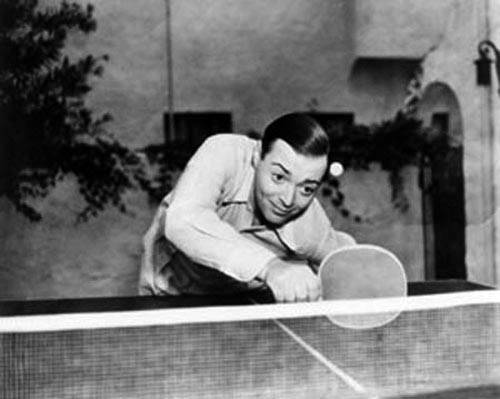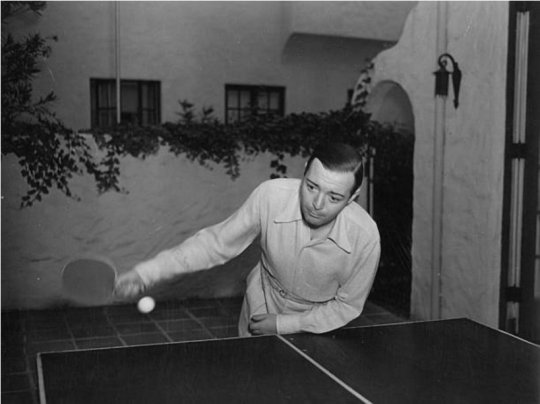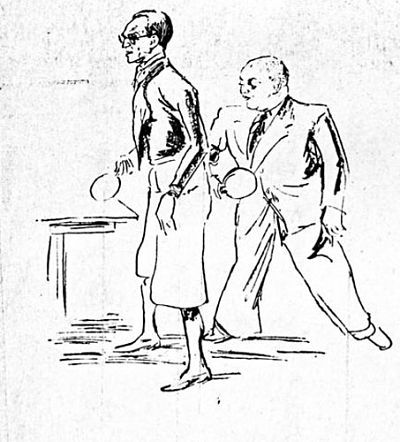#elisabeth hauptmann
Explore tagged Tumblr posts
Text




Tony Azito, Meryl Streep, Christopher Lloyd and Grayson Hall in Hauptmann, Brecht, and Weill's Happy End, 1977.
#happy end#elisabeth hauptmann#bertolt brecht#kurt weill#meryl streep#grayson hall#christopher lloyd#tony azito#theatre
67 notes
·
View notes
Text
youtube
0 notes
Text
youtube
Bertolt Brecht escribió "Alabama Song" en 1925 y la publicó por primera vez en la colección "Hauspostille" en 1927. Ese mismo año Kurt Weill hizo la música y Elisabeth Hauptmann la adaptación al inglés para el espectáculo "Little Mahagonny". Lotte Lenya & Irene Eden la interpretaron por primera vez en directo en julio de ese año, y en 1930 la misma Lenya - cantante austriaca nacionalizada norteamericana y esposa de Kurt Weill- la publicó en disco acompañada de The Three Admirals y Theo Mackeben y su Orquesta de Jazz. La canción fue también parte de la ópera en tres actos "Ascenso y Caída de la Ciudad de Mahagonny" ("Aufstieg und Fall der Stadt Mahagonny") estrenada el 9 de marzo de 1930.
0 notes
Text
Reblogging & updating because I attached the script to "Happy End", songs & all! Now you can read along as Peter would have.
Peter Lorre in "Happy End" (1929) + Script

Bertolt Brecht co-authored "Happy End," a musical comedy, with co-authored with Elisabeth Hauptmann in 1929.
Peter played Dr. Nakamura (the Governor), a sinister Oriental thug with karate chops and gun play.

Above: Rehearsal shot! From left: Erich Engel, Peter Lorre, Helene Weigel, Kurt Gerron (with cigarette), Carola Neher, and Oskar Homolka.

Peter with Helene Weigel as The Fly.
Peter also had a song! Here's "Song of the Big Shot":

"Happy End" opened the same day and hour as Dantons Tod, a four-hour production Peter Lorre was also in.
"According to Lorre, Brecht enabled him to overlap appearances as Dr. Nakamura in Happy End and Saint-Just in Dantons Tod by killing off the Governor in the first act. A waiting taxi, in which Lorre hastily changed from gangster garb to general’s uniform, sped him from the Schiffbauerdamm Theater to the Volksbühne am Bülowplatz. When Brecht learned that Lorre had time to return before the end of act 3, he resurrected the seemingly slain Nakamura. Peter had this line: 'You thought I was shot? No, I’m just a little bit injured.'" Source
Read the play and imagine Peter in the Governor / Dr. Nakamura role -> Here's a PDF of the script in English (with Peter's song as shown above, too).
#peter lorre#peter lorre stage#peter lorre play#peter lorre theatre#bertolt brecht#Elisabeth Hauptmann#Happy End#peter lorre song
20 notes
·
View notes
Text
#hey gays#neuer poll#german stuff#deutsches zeug#literatur#ich hab ne favoritin aber um eine unparteiische ausrichterin zu sein vote ich erst mal nicht mit rein#goethe#schiller#etc pp
275 notes
·
View notes
Note
while kenny is officially very losely inspired by trevor phillips my mind instictively associates him more with characters like betty grof or ,especially, pearl from SU ("Everything I ever did, I did for her. Now she's gone, but I'm still here. Sometimes, I wonder if she can see me through your eyes.")
what characters slash things in general do you associate with the guy?
i was able to restrict this to three and god they get successively worse
ASOIAF's whole deconstruction of knighthood, in which the kingsguard is quite homosocial to begin with (vow of chastity/taking no wife) BUT i mainly mean davos seaworth, not kingsguard but a married, landed knight. hand mutilation old man yaoi meet cute? come on. uri does a lot less than than stannis, but the proportion of adoration to each king's actual rule is just. "king stannis is my god. he made me and blessed me with his trust." but flip stannis and davos' individual personalities/moral qualms/emotional constipation to get kenuri
two walton goggins characters, but mostly boyd crowder from justified. a quirk of this being recession-era cable and goggins' and the writers' hangups about portraying a sincere neo-nazi (as he is in the source material), boyd does less of a 180 than he's retconned to "jk, i only did all that for the prison clout/manpower." completely opposite end of the ideological spectrum, i defend kenny's body count as a net good for class warfare even though he did not care!!! not even about the ackermans!! and then i'm delusional and also project cooper howard/the ghoul from fallout on amazon
macheath from the threepenny opera, libretto elisabeth hauptmann and bertolt brecht. i was so thrown for a loop first encountering the name "kenny the ripper," not for jack the ripper who idgaf about but the penny dreadful, victorian tone of kenny's urban legend. mac is a yapper and hypocrite and genuinely monstrous criminal who nonetheless gets cool class-conscious lines shoehorned in the final scene before his would-be execution: "What’s a jemmy compared with a share certificate? What’s breaking into a bank compared with founding a bank? What’s murdering a man compared with employing a man?" his deepest relationship is not with his new wife or chorus of ex-girlfriends but his best friend from the army. the song introducing him is a runaway jazz/swing standard: lotte lenya in the original german, louis armstrong, nick cave (kind of bad but that's my man)
some others i've said more lightly: this political trajectory, toji fushiguro and implicitly the grand tradition of shounen deadbeats, the irishman. i also think if he stans any k-pop group it's red velvet
4 notes
·
View notes
Text
1 note
·
View note
Text
RIAS Berlin Sinfonietta / John Mauceri / René Kollo / Ute Lemper / Milva / Mario Adorf / Helga Dernesch / Wolfgang Reichmann / Susanne Tremper / Rolf Boysen - Die Dreigroschenoper
Austria / Germany / Italy / Poland / Switzerland / USA, 1990, operetta / zeitoper Composed by Kurt Weill / Bertolt Brecht / Elisabeth Hauptmann.

View On WordPress
0 notes
Text
2024 marks the year that Brecht and Weill's The Threepenny Opera enters public domain (in the US at least, copyright law is strange and fickle), including the swingingest murder ballad ever put to wax!
The Threepenny Opera, a 'play with music' as described by its authors, is a socialist musical, with book and lyrics by Bertolt Brecht ("borrowed" heavily from work by his peer Elisabeth Hauptmann), and music by Kurt Weill. Heavily influenced by American jazz, German popular song, and anti-capitalist social critique, the musical is a dark and steady dirge of misery and cruelty, exploring London's seedy underbelly and its most downtrodden citizens, as well as the cutthroat characters who exploit them. It was highly popular in its day, even following the rise to power of the Nazis, and has been revived on stage every few decades since. This is to say nothing of it's most enduring number, 'Mack the Knife', or 'Die Moritat von Mackie Messer' in its original language.
The original is... not as catchy or winkingly devilish as the English-translated version first recorded by Armstrong. 'Die Moritat...' is a sinister drone introducing one Mackie Messer, he of the famous teeth. However, the original presents a frightening figure, relaying his shocking acts of violence against women and children, establishing him as a murderous gangster. No John Derringer or Dick Turpin, this fella. This tone matches well the source work, which, as mentioned above, is a critical look at the societal conditions that allow people like Messer to sink their teeth into vulnerable communities, and mould themselves into unshakeable figures of intimidation and control. It's not a pretty song, in tone or tune, because it's not meant to be.
Enter this swing version, translated and reworked by the songwriter Marc Blitzstein. The lyrics here are sanitised, making Mackie out to be more of a rogue with a sinister side, someone that could more easily lurk in the jazz standards of American music. Couple that with the more danceable big band backing, and its difficult to listen to this and come away with much of a bad opinion of this Mack the Knife character, lmao. It's a far cry from the cynical and socialist purposes of The Threepenny Opera, and a potent example of America's long history of its popular media watering down politics in art to the point where it's scarcely recognisable.
That said, while I can't say the above sanitisation doesn't irk me... The Armstrong version is the better song lol. The German original works best in its full stage context; it's close to unlistenable outside of it. This is intentional, but intent and audience enjoyment frequently run contrary to each other. The brassy swing of Armstrong's single recording snaps its fingers in ways the original just can't, and this is to say nothing of it having the advantage of the man singing it. Louis Armstrong was a vocalist who could bring out warmth and charm of whatever went in his ear and came out his mouth, and not even Mackie Messer is a match for that. So, with apologies and sympathies to Brecht and Weill, it's clear why the Yank version is the one remembered, having been covered by scores of subsequent artists since 1955. Mein Beileid.
Tuesday Night Music Club No. 12 - 'Mack the Knife' by Louis Armstrong
youtube
#and yeah Bobby Darin's version is more famous but Armstrong sings him out of the bloody water js#tuesday night music club
3 notes
·
View notes
Text



Was I supposed to know that Bert Brecht was a Shelley fanboy appreciated his political writings or find that out through a random newspaper clipping from the 60s myself??
I thought I’d share, because knowing that Brecht read and appreciated Shelley for an important part of his work that’s often been dismissed in favour of his less political writings makes me really happy.
Here’s a not very professional translation by me:
“Brecht saw it another way: ‘It might be good to introduce to the reader a writer of the past, who wrote differently from the middle-class novelists and still must be called a great Realist: the great English revolutionary poet P. B. Shelley.’
Brecht then discusses Shelley’s political poem ‘The Masque of Anarchy’ and says: ‘Here, murder was not only called by its real name, but what claimed to be peace and order was unmasked as anarchy and crime. And this ‘symbolistic’ style of writing did not keep Shelley from being very precise. His flight did not rise too far from the ground…
There’s much to learn from Balzac, provided that one has already learned a lot. But poets like Shelley have to be given an even more visible standing within the great school of Realism than Balzac, considering he [Shelley] enables the abstraction in a better way than the latter and wasn’t an enemy of the lower classes, but a friend.’”
(article by Eckart Klessmann, *presumably* ~ 1967, because he mentions Shelley being born 175 years ago [even though the headline says 150, but that article being published in 1942 Germany seems…unlikely], *presumably* published by German newspaper “Die Welt”, or at least that’s how far research took me)
#percy shelley#bertolt brecht#the masque of anarchy#shelley#brecht#my boys <3#even wrote my last paper about how both their political views made the posthumous publishing of their works hella difficult#mainly for the main editors of the posthumous editions#who were also their wife (Mary) or lover (Elisabeth)#whose efforts basically and fundamentally created the corpus of Shelley/Brecht that we know today#while facing a lot of obstacles#mary shelley#elisabeth hauptmann
20 notes
·
View notes
Text
The Signs As Threepenny Opera costumes
Aries

Taurus

Gemini

Cancer

Leo

Virgo

Libra

Scorpio

Sagittarius

Capricorn

Aquarius

Pisces

#the signs as#the threepenny opera#bertolt brecht#elisabeth hauptmann#zodiac aesthetic#astrology#horoscope#kurt weill
82 notes
·
View notes
Audio
Judy Kaye sings Surabaya Johnny from Happy End [Miami, February 1986]
11 notes
·
View notes
Text
Let's Play Ping Pong With Peter Lorre



Just felt like collecting the Peter Lorre ping-pong pictures in one place. Any others?
The bottom one is Conrad Veidt + Peter Lorre during the simultaneous shooting of the three versions of "F.P.1 antwortet nicht," 1932 (Peter was in the German version, Conrad in the English; Charles Boyer was in the French):
"After dinner, there was only one diversion—Ping-Pong. Much to everyone’s amusement, the six-foot-five Veidt and the five-foot-five Lorre—who tipped the scale at the same undisclosed weight—paired up. 'And these two guys, the one who played ‘Caligari’ and the other one who played the mass murderer in M became a team in Ping-Pong that was unbeatable,' said [screenwriter Walter] Reisch. 'It was not just if we win tonight, it was a matter of life and death to win the tournament. Not for the money, but there was a gala reception afterwards and a medal. And these guys played together like a team, with beautiful timing.'"
And not too much later:
News of Lorre’s arrival in Los Angeles had preceded him by over a month. “In all of the newspapers here, we read of his coming,” Elisabeth Hauptmann wrote Walter Benjamin in Paris. “One has to congratulate the man who engaged the ‘genius actor.’” Hollywood extended a warm welcome to the Lorres. Invitations summoned Peter and Celia to lavish Viennese and Tyrolean dinner parties, where they mixed with old friends such as Fritz Lang, G.W. Pabst, Billy Wilder, and Franz Waxman and met new ones, among them Jean Negulesco, Delmer Daves, Paul Muni, and Olivia de Havilland. The Friedrich Hollaenders also enrolled Lorre—along with Ernst Lubitsch, Conrad Veidt, and Josef von Sternberg—for their Sunday afternoon Ping-Pong tournaments."
All quotes from "The Lost One: A Life of Peter Lorre" by Stephen D. Youngkin.
62 notes
·
View notes
Photo







Gesture drawings from the first year character animators! From the top: Elisabeth Wengstad, Inez Kristina, Cathrine Baab, Anna Bonnén, Joana Nobre Hauptmann, Erika Grace Strada, and Hugo Beaurepère.
#elisabeth wengstad#inez kristina#cathrine baab#anna bonnen#joana nobre hauptmann#erika grace#hugo beaurepere#ca17#character animation#gesture drawing
25 notes
·
View notes
Text

Grayson Hall as the Lady in Grey in “Happy End” a three-act musical comedy by Kurt Weill, Elisabeth Hauptmann, and Bertolt Brecht. Broadway 1977
9 notes
·
View notes